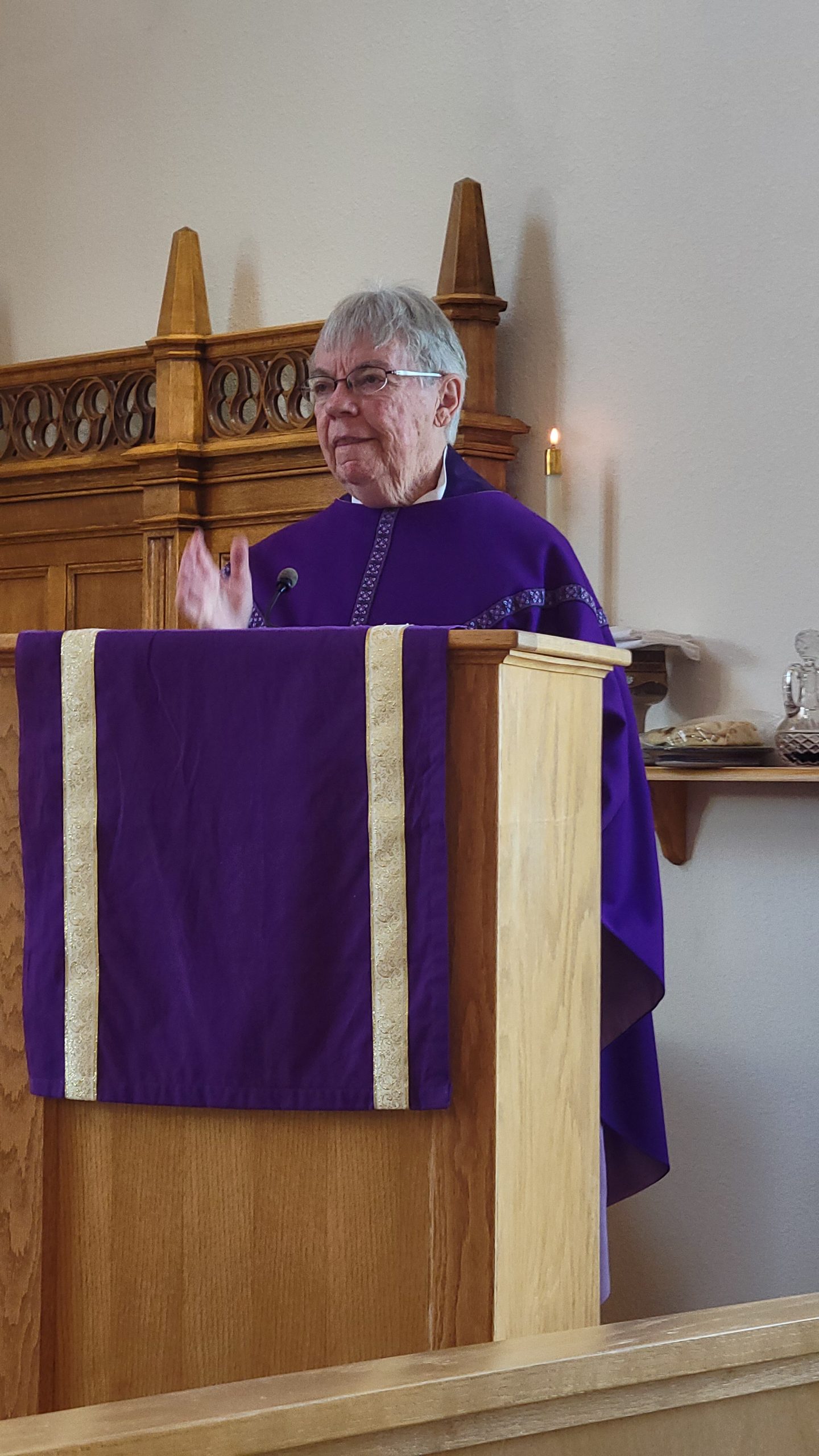Rev. Cathy Cox
Lent 5 C – April 3, 2022
Last week we read the story of the prodigal son, which I reframed as the prodigal father – as a model of God, who is that kind of Father – and Mother.
Today I want to just briefly point out that the gospel story we have just read, shows a prodigal woman, modeling God‘s generosity, and modeling also the best human response to God‘s love.
Prodigal, remember, means both wasteful and generous – and it implies extravagance as well.
In John, the woman is identified as Mary, Martha and Lazarus’ sister – the one who put herself squarely on the side of the disciples at dinner – Do you remember how she chose to sit at the feet of Jesus – as a student, a learner, equal to the other disciples – when poor Martha was busy in the kitchen with the servants getting dinner ready?
On that occasion, as on this one – Jesus’ response was “leave her alone,” “She has chosen the better part.“
and now “Leave her alone” – “She bought it for the day of my burial.”
I hope you see something emerging here. For Jesus, women and women’s ways were precious – valuable in themselves.
Mary put herself in the middle of the study and discussion that the men were enjoying – and Jesus welcomed her presence and participation.
And Mary’s feminine intuition to do something extravagant to show her love for Jesus even though she knows he is about to die – because she knows it – is equally valued.
What she did was to respond that knowledge with love – extravagant love – wasteful love.
And Jesus welcomed that, too.
We don’t know how Mary could afford such an expensive gift to pour out on Jesus‘ feet – how much of her inheritance, maybe, she spent to buy it – and it doesn’t matter.
But the gesture – both the anointing and using her own hair to wipe it – is expansive, excessive, extravagant, almost scandalous; a public act of great love – performed in front of a bunch of men who probably were at least uncomfortable seeing her do it.
And look – Jesus wasn’t embarrassed or shocked or annoyed. He was grateful.
Of course Judas, who actually didn’t care about the poor, was technically correct – 300 denarii was a year’s wage for a day laborer in Jesus time.
That money could feed a lot of hungry people.
But Jesus simply said – “Leave her alone.”
There is always need.
The poor will always be with us.
They will always need our care, our generosity, our giving.
But there is also the gift of prodigal love that pours itself out in beauty simply because of love for God – for what God has done in Jesus – in gratitude for the beauty of creation – in hope and trust that death is not the end of the story – and, form Mary’s point of view, that even if it is – it is good to prepare for it with tenderness and love.
But what do you think? Might Mary have intuited that Jesus’ death might not actually end in death after all? Lazarus’ hadn’t. What if she guessed that deep secret at the heart of creation – that the love of God would raise Jesus, too – as Jesus had raised Lazarus?
Yesterday we planted close to 500 trees – baby trees – barely more than sticks, although some of them are budding already – Why?
Caring for our creation – making beauty for birds and mice and deer to enjoy – looking ahead to a time many of us will not even see – planting prairie and gardens; it is all simply an act of beauty – of weary and joyful gratitude towards God who has given us this world to keep and to cherish and to love –
When we show up week after week to sing, to worship, to pray together – to eat the bread and drink the cup – Well, that’s impractical, too. And extravagant. Wasteful.
Why do we bother?
It takes up a chunk of our only day off – The world around us does not recognize any sort of Sabbath It doesn’t value the pause – the rest – the STOP.
Wal-mart is as busy on Sunday as on Saturday.
And yet – and yet – we do need to slow down – to remember who we are – and whose we are – to offer ourselves as a living sacrifice – holy and extravagant and acceptable to God, who receives our worship, or hymns – our confessions of trust – even in the midst of suffering and loss and fear for what is happening in Ukraine – and politically, even here. We come to “declare God’s praise.” – anyway.
When Ezra read that first reading from Isaiah, my heart fairly danced – Did you hear it? “I give water in the wilderness, rivers in the desert, to give drink to my chosen people – (but also to jackals and the ostriches!)- the people whom I formed for myself so that they might declare my praise.”
God help us to be generously practical – that’s the easy part; but also to be prodigal, joyful, impractical, extravagant
Like the Prodigal Father – like the Prodigal Woman

No responses yet